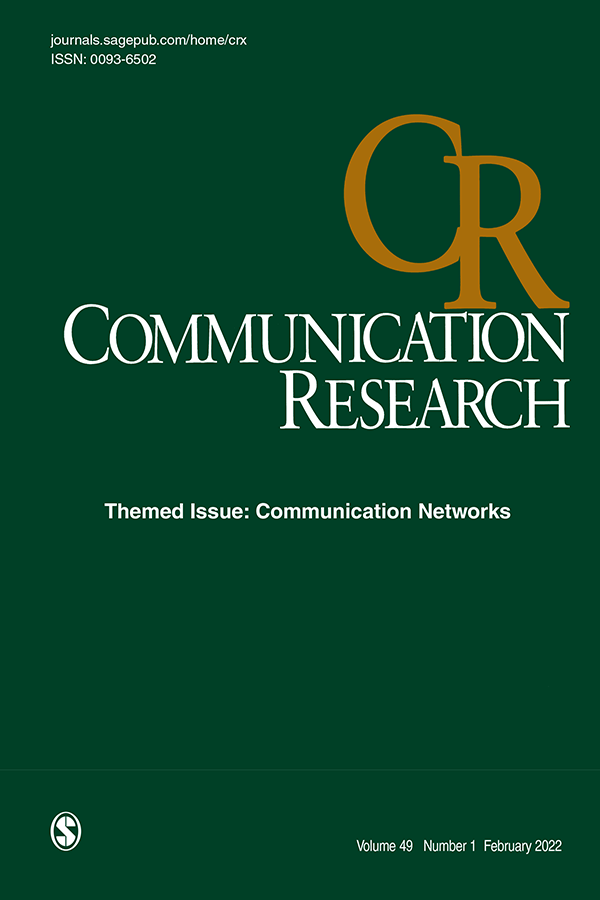系统回顾传播期刊中应用于危机事件的归因理论:整合并提升洞察力
IF 3.2
1区 文学
Q1 COMMUNICATION
引用次数: 0
摘要
危机中的沟通在个人、组织和社会层面的研究已经显著扩大,归因理论经常被用来解释人们如何解释这些危机。然而,危机的三个层面的研究都是各自独立发展的,限制了理论的进步。本研究系统回顾了133篇基于归因理论的危机情境传播文章,发现责任归因是可以整合成一个统一的框架的。归因理论通常与情景危机传播理论、框架理论和形象修复理论这三种三十多年前发展起来的传播理论相结合,主要关注内容效应。本研究呼吁现代化归因相关的传播理论,并在当今快速变化的媒体环境中测试超越内容影响的媒体效应。此外,提倡采用多主体的责任归因方法,强调治疗责任归因。提供了对研究背景和方法的进一步见解,以推进学术知识并为未来的研究提出方向。本文章由计算机程序翻译,如有差异,请以英文原文为准。
A Systematic Review of Attribution Theory Applied to Crisis Events in Communication Journals: Integration and Advancing Insights
Research on communication in crises across individual, organizational, and societal levels has expanded significantly, with attribution theory frequently used to explain how people interpret these crises. However, research in the three levels of crises has developed independently, limiting theoretical advancement. This study systematically reviews 133 attribution theory based communication articles in crisis situations, showing that responsibility attribution can be integrated into a unified framework. Attribution theories are most commonly integrated with situational crisis communication theory, framing theory, and image repair theory—three communication theories developed over three decades ago, primarily focusing on content effects. This study calls for modernizing attribution-related communication theories and testing media effects beyond content influence in today’s rapidly changing media environment. Additionally, it advocates for adopting a multi-agent approach to responsibility attribution and emphasizing treatment responsibility attribution. Further insights into research contexts and methodologies are provided to advance scholarly knowledge and suggest directions for future research.
求助全文
通过发布文献求助,成功后即可免费获取论文全文。
去求助
来源期刊

Communication Research
COMMUNICATION-
CiteScore
17.10
自引率
0.00%
发文量
20
期刊介绍:
Empirical research in communication began in the 20th century, and there are more researchers pursuing answers to communication questions today than at any other time. The editorial goal of Communication Research is to offer a special opportunity for reflection and change in the new millennium. To qualify for publication, research should, first, be explicitly tied to some form of communication; second, be theoretically driven with results that inform theory; third, use the most rigorous empirical methods; and fourth, be directly linked to the most important problems and issues facing humankind. Critieria do not privilege any particular context; indeed, we believe that the key problems facing humankind occur in close relationships, groups, organiations, and cultures.
 求助内容:
求助内容: 应助结果提醒方式:
应助结果提醒方式:


